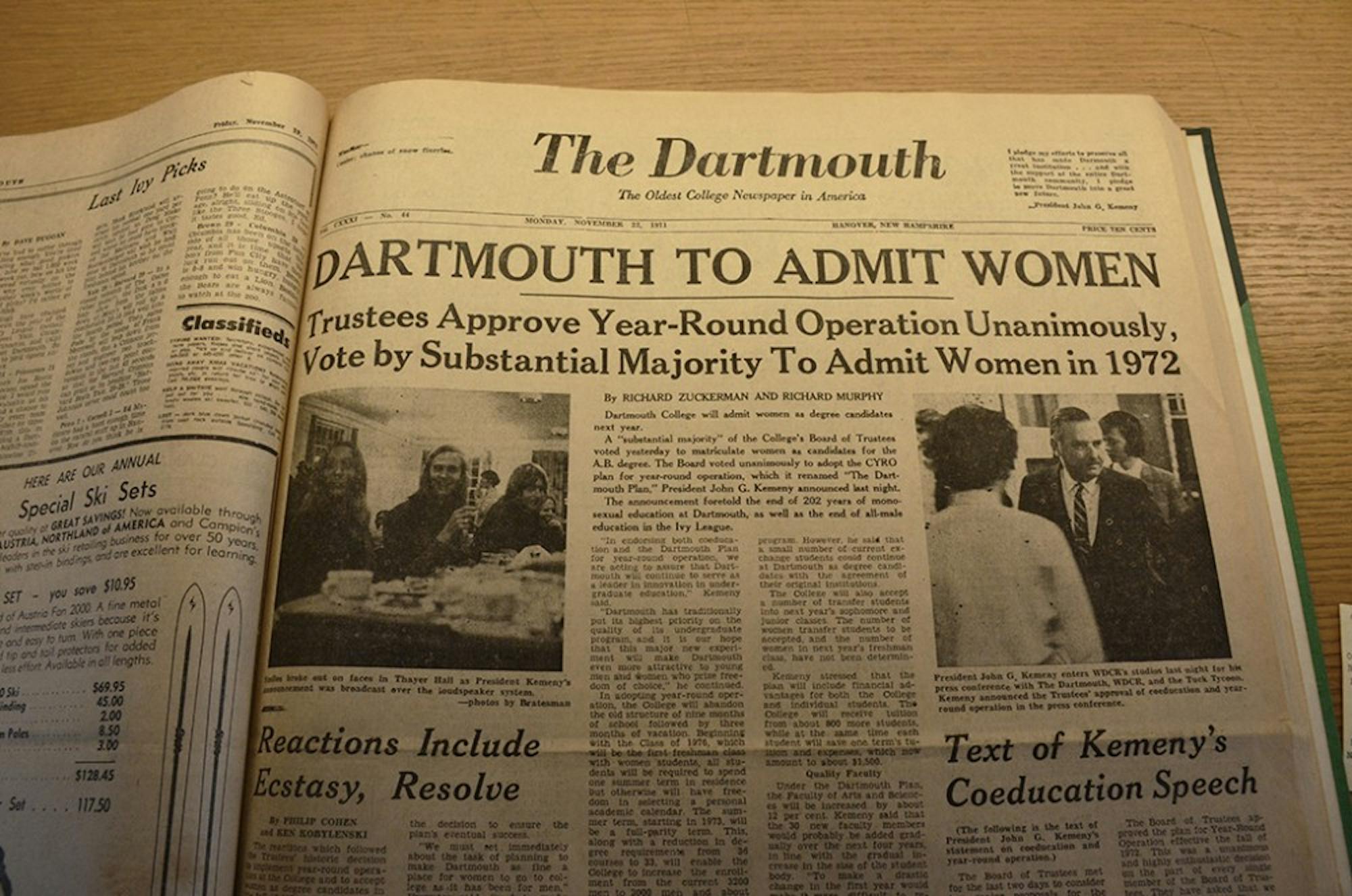In a survey conducted by The Dartmouth, 342 students shared their perspectives on the College’s campus climate in regards to gender. Amongst the topics considered were Greek life, the College housing system, academic discrimination and counseling and medical services available for people questioning their gender identity. The survey represents approximately eight percent of the student body and was not weighted for demographics.
Forty-three percent of respondents identified as male, 52 percent as female, 2 percent as gender nonconforming and 3 percent as other, including “demigirl,” “transmasculine non-binary” and “agender.” Responses were broken down relatively equally by class year.
The prospect of mandatory gender sensitivity courses at Dartmouth was met with strong disapproval. A plurality of students — 38 percent — strongly disagreed with implementing such a course, with another 24 percent disagreeing. Only 21 percent either strongly agreed or agreed with the proposal. Still, most students did believe gender as a concept should be a part of campus dialogue, with 62 percent of respondents agreeing with that statement to 21 percent against.
Most respondents could not report having themselves experienced gender-based discrimination in most settings, but many knew someone who had. Half of respondents said they were aware of someone who had experienced gender-based discrimination in academic settings.
The responses indicate a campus with social spaces that are split by gender in terms of safety and inclusivity and a perception that more people are discriminated against than can actually report such discrimination. But there is little support for mandatory courses on the subject.
For fraternities and sororities, the responses were more mixed. While most agreed that sororities were safe for both men and women, gender non-conforming individuals were not viewed as equally welcome.
Additionally, sororities were not always viewed as welcoming by respondents. Sixty-eight percent of respondents believed sororities were welcoming for men, while 10 percent believed they were not. Eight-one percent of respondents thought sororities were welcoming for women, with five percent disagreeing. Forty-two percent of respondents thought sororities were welcoming for gender nonconforming individuals and 22 percent thought sororities were not.
The picture for fraternities was even more mixed. While 86 percent of respondents believed men were safe in fraternities, 51 percent felt the same for women, and 37 percent felt gender nonconforming people were safe. Twenty-eight percent felt women were not safe in fraternities and 33 percent said the same of gender nonconforming individuals. More people believed women were welcome in fraternities than safe, however. Sixty-four percent of respondents believed women were welcome in fraternities, compared to 88 percent who felt the same for men and 29 percent for gender nonconforming individuals. But 40 percent of respondents thought gender nonconforming people were not welcome in fraternities.
Most students believed the College does enough to provide gender-neutral facilities — including bathrooms and dorms — with 56 percent saying they agreed these facilities are adequate and 21 percent saying they disagreed.




